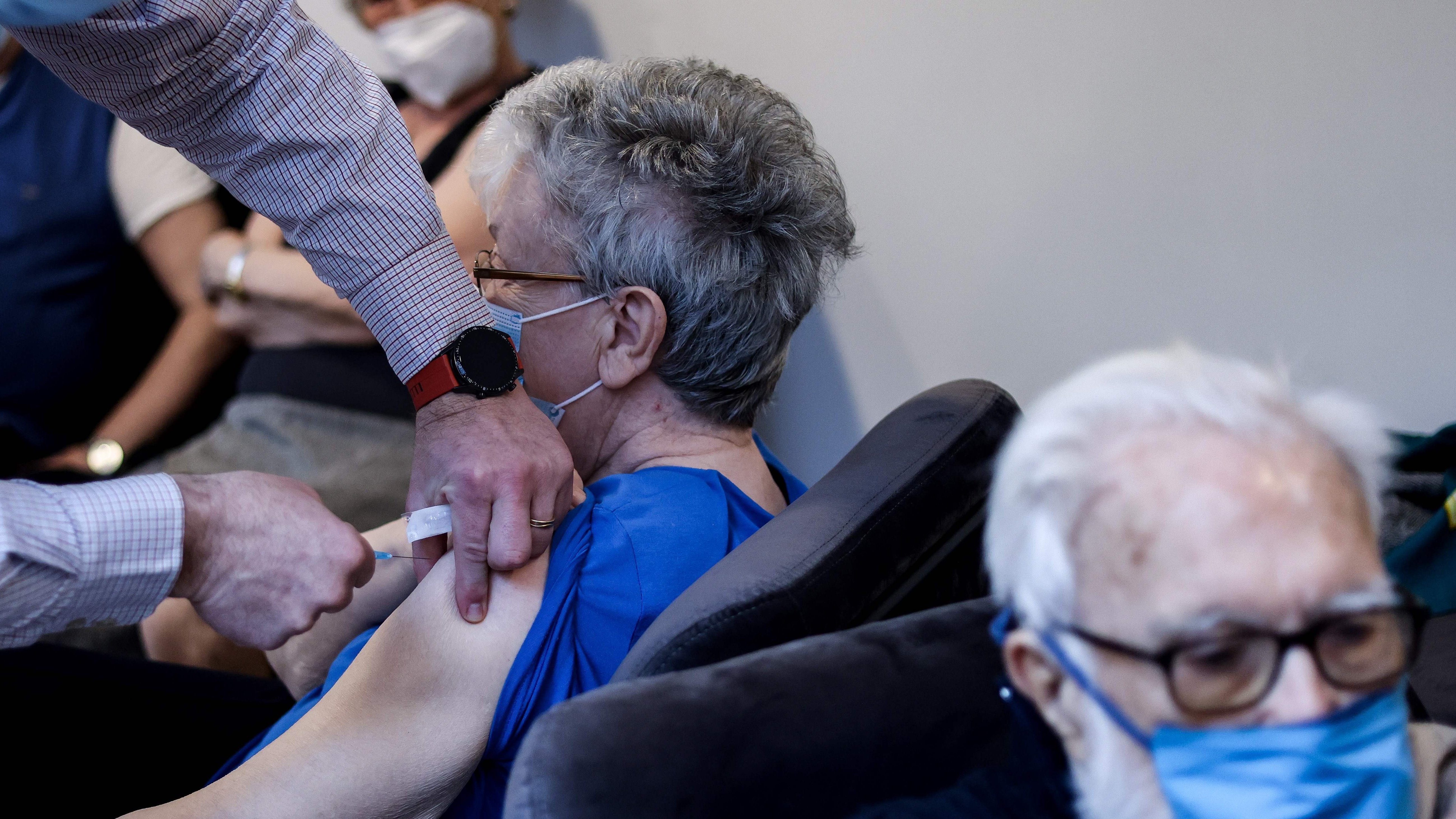Europe scrambles to tighten Covid-19 restrictions amid faltering vaccine rollouts
France introduces curfew as Germany considers tougher measures after deaths hit record high

A free daily email with the biggest news stories of the day – and the best features from TheWeek.com
You are now subscribed
Your newsletter sign-up was successful
Governments across Europe are rethinking their Covid-19 responses as new variants of the coronavirus push struggling health services to breaking point.
France is introducing a 6pm nationwide curfew that will be in force for at least 15 days from Saturday. And German newspaper Münchner Merkur reports that Chancellor Angela Merkel is “reviewing drastic coronavirus rules” after a record daily death toll of 1,244 was reported by Berlin on Thursday.
Merkel told senior officials from her Christian Democratic Union party yesterday that she wants “to bring forward a meeting with regional leaders planned for 25 January, and that tougher measures must be discussed” to stem the spread of the virus, according to Reuters.
The Week
Escape your echo chamber. Get the facts behind the news, plus analysis from multiple perspectives.

Sign up for The Week's Free Newsletters
From our morning news briefing to a weekly Good News Newsletter, get the best of The Week delivered directly to your inbox.
From our morning news briefing to a weekly Good News Newsletter, get the best of The Week delivered directly to your inbox.
Similar scenes are playing out in neighbouring nations, amid “naked panic across the continent that the new variants of the coronavirus may catapult the situation completely out of control”, writes Politico Brussels Playbook’s Florian Eder.
A spike in infections and worries about new Covid variants are fuelling frustration over the slow rollout of the vaccine across the EU. The bloc’s leaders are “looking over their shoulders at Israel, the US and the UK, and wondering how their voters are going to react if these countries start getting back to normal while they are still stuck in lockdown”, writes ITV’s Europe editor James Mates.
The slow progress on the continent has been blamed on “lack of supply, lack of vaccine options and a failure to plan for a massive national effort”, he continues.
Meanwhile, reports of EU member states making separate arrangements outside of the bloc’s joint procurement scheme have increased internal tensions.
A free daily email with the biggest news stories of the day – and the best features from TheWeek.com
Indeed, “the vaccine roll-out in Europe is becoming a political, as much as a medical problem in the EU”, Mates adds.
Britain has now vaccinated more people than the EU combined, while Denmark is leading the way among member states, according to Oxford University tracking.
The UK has administered a total of 3.36 million jabs so far, which equates to 4.94 per 100 people being vaccinated, and Denmark has delivered 129,000 jabs, about 2.23 per 100 people.
Joe Evans is the world news editor at TheWeek.co.uk. He joined the team in 2019 and held roles including deputy news editor and acting news editor before moving into his current position in early 2021. He is a regular panellist on The Week Unwrapped podcast, discussing politics and foreign affairs.
Before joining The Week, he worked as a freelance journalist covering the UK and Ireland for German newspapers and magazines. A series of features on Brexit and the Irish border got him nominated for the Hostwriter Prize in 2019. Prior to settling down in London, he lived and worked in Cambodia, where he ran communications for a non-governmental organisation and worked as a journalist covering Southeast Asia. He has a master’s degree in journalism from City, University of London, and before that studied English Literature at the University of Manchester.
-
 The Week contest: AI bellyaching
The Week contest: AI bellyachingPuzzles and Quizzes
-
 Political cartoons for February 18
Political cartoons for February 18Cartoons Wednesday’s political cartoons include the DOW, human replacement, and more
-
 The best music tours to book in 2026
The best music tours to book in 2026The Week Recommends Must-see live shows to catch this year from Lily Allen to Florence + The Machine
-
 Greenland’s capital becomes ground zero for the country’s diplomatic straits
Greenland’s capital becomes ground zero for the country’s diplomatic straitsIN THE SPOTLIGHT A flurry of new consular activity in Nuuk shows how important Greenland has become to Europeans’ anxiety about American imperialism
-
 Epstein files topple law CEO, roil UK government
Epstein files topple law CEO, roil UK governmentSpeed Read Peter Mandelson, Britain’s former ambassador to the US, is caught up in the scandal
-
 Iran and US prepare to meet after skirmishes
Iran and US prepare to meet after skirmishesSpeed Read The incident comes amid heightened tensions in the Middle East
-
 Israel retrieves final hostage’s body from Gaza
Israel retrieves final hostage’s body from GazaSpeed Read The 24-year-old police officer was killed during the initial Hamas attack
-
 China’s Xi targets top general in growing purge
China’s Xi targets top general in growing purgeSpeed Read Zhang Youxia is being investigated over ‘grave violations’ of the law
-
 Panama and Canada are negotiating over a crucial copper mine
Panama and Canada are negotiating over a crucial copper mineIn the Spotlight Panama is set to make a final decision on the mine this summer
-
 Why Greenland’s natural resources are nearly impossible to mine
Why Greenland’s natural resources are nearly impossible to mineThe Explainer The country’s natural landscape makes the task extremely difficult
-
 Iran cuts internet as protests escalate
Iran cuts internet as protests escalateSpeed Reada Government buildings across the country have been set on fire